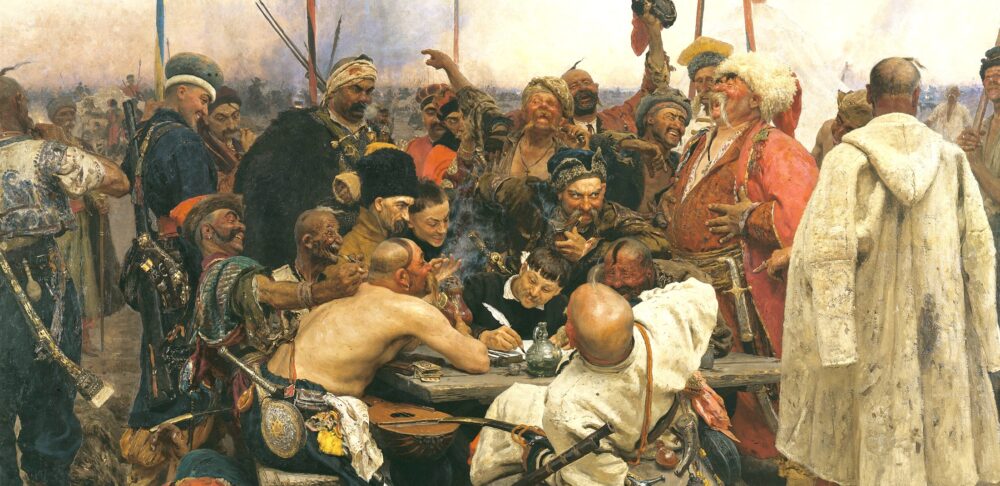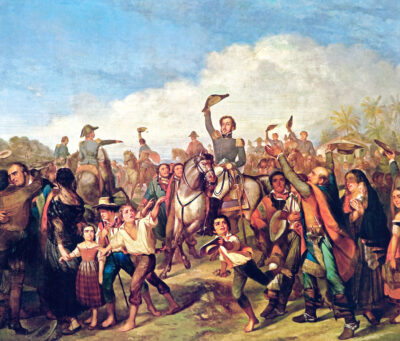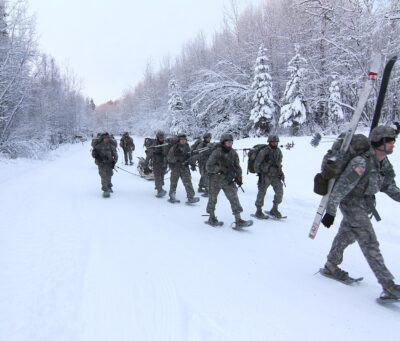Global politics has always been a dangerous and uncertain arena. In our increasingly imperiled world, the United States has an indispensable role as the diplomatic, military, and moral leader of the West and the free world at large. This country also has a deep and abiding obligation to its own people, who not only have an enduring desire to act as a force for good in the world, but who also expect their government to deliver prosperity and peace at home as well as maintain their interests in the global economy. New complications to these goals are emerging every day. Alexander Hamilton, in his fourth letter under the name ‘Pacificus’ in 1793, called for “a policy regulated by [the United States’s] own interest, as far as justice and good faith permit” — this balanced guidance remains instructive for grand strategy today. [1]
Enter our best students, armed with incisive analysis of the most pressing issues in foreign affairs and a vision for this country’s future in the era of great power competition. Their patriotic sense of purpose is as necessary as it is noble, and in this edition of The Hamiltonian they call our attention to familiar and avant-garde policy issues alike. Meriting special recognition is one author who appears for the third time in three editions of this journal: Alex Hu, who draws from poetry about the early Internet, the competition for the American West, and Secretary John Hay’s Open Door policy to make the case for U.S. digital statecraft.
Several pieces in this edition naturally focus on avenues of Beijing’s contest with the United States. Josh Hypes reviews Hal Brands and Michael Beckley’s Danger Zone: The Coming Conflict with China, engaging with some of the most popular arguments related to a potential conflict over Taiwan. China’s actions outside of East Asia are also concerning. Carolina Amparo posits a road map for U.S. diplomacy and development policy in Latin America aimed at cementing relationships with states increasingly exposed to Chinese investment and other influence, and Alexander Joel prescribes greater focus on the Arctic in response to cooperation between China and Russia, which has already begun to endanger the security of the region historically governed by multilateral and rules-based cooperation.
Nor has Russia gone unnoticed. Its invasion and occupation of Ukraine, now in its tenth year, have continued to concern our authors in this edition, who have been especially troubled by the arguments advanced by Western opponents of aid to the embattled Ukrainian front. Kyle Northrup argues against the so-called foreign policy “realists,” emphasizing that Russian President Vladimir Putin’s openly stated imperial ambitions in Eastern Europe make it impossible to call his invasion of Ukraine a defensive conflict. Will Kielm, along similar lines, directly engages the assumptions of offensive realism to claim that the theory should support a more active U.S. grand strategy focused on managing threats abroad rather than the isolationist approach advocated by many realist partisans.
The lessons of Eastern Europe’s ascent from Soviet totalitarianism – and its continued survival under threat of Russian aggression – inspired Zak Schneider to call attention to the complacency of Western liberal democracies. From this experience, he proposes a way to revivify “boring” liberal peace with the inspiring example of Eastern Europe’s vigorous self-defense and the moderating influence of culture and community.
The U.S. industrial base, a topic which has especially concerned defense planners and economic policy analysts since the global supply chain shocks during the COVID-19 pandemic, has also earned the attention of our authors. Eli Glickman writes about the challenges facing the defense industrial base, advocating for a mixed strategy of reshoring production to the United States as well as its allies and partners, to build a resilient and flexible foundation for U.S. military competition with both China and Russia. Eduardo Castellet Nogués focuses on private sector manufacturing policy, drawing heavily from Alexander Hamilton’s famous Report on Manufactures to make a case for an economic policy which encourages industrial power at home and a dynamic and competitive technology sector for the modern economy.
Although this edition rightly focuses on the challenges that the United States is facing at home and abroad as it engages in strategic competition against China and Russia, our authors do not neglect smaller states and their role in securing prosperity and peace. Axel de Vernou explains why middle powers tend to prefer non-alignment and independence from great powers despite the moral stakes of global politics; he recommends policies sympathetic to foreign interests to maintain strong U.S. relations abroad. Finally, Ty Rossow argues that climate finance and development policy also have significant roles to play in strategic competition, analyzing specific reforms to international institutions which could improve their efficacy and attractiveness against Chinese alternatives.
This collection of essays is the product of tireless work by many astute students who are forward-thinking and well-equipped to speak on a wide range of foreign policy issues. Their focus on the greatest moral and strategic challenges of the day is an inspiration, and it is our belief that each one of them is a valuable future leader who can help ensure that this great nation’s best days are still ahead.
—
Notes:
[1] The Papers of Alexander Hamilton, vol. 15, June 1793-January 1794, ed. Harold C. Syrett (New York, NY: Columbia University Press, 1969), 82-86.



